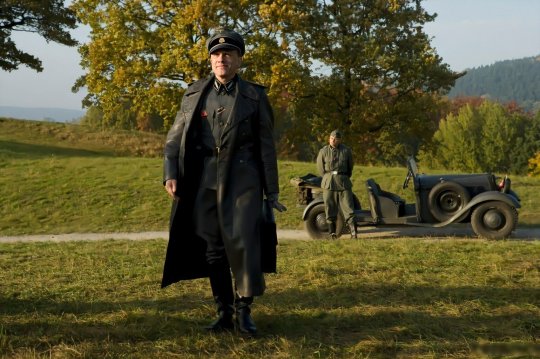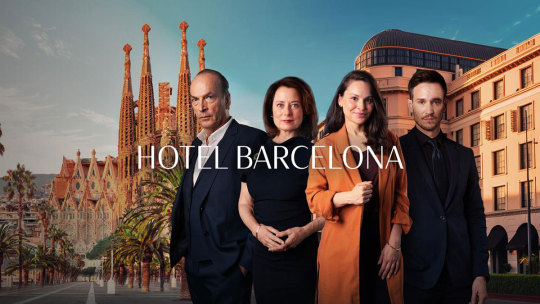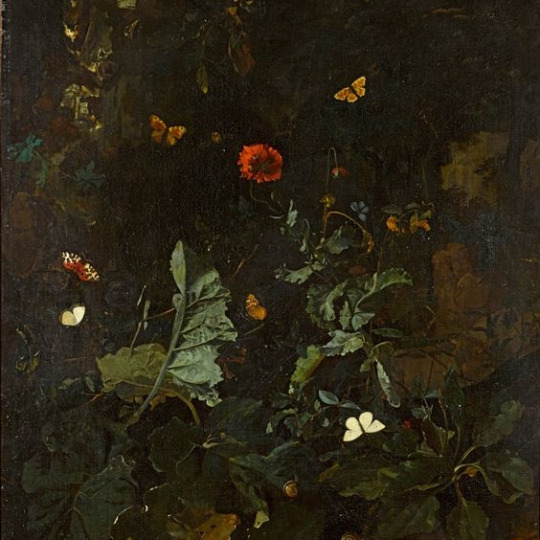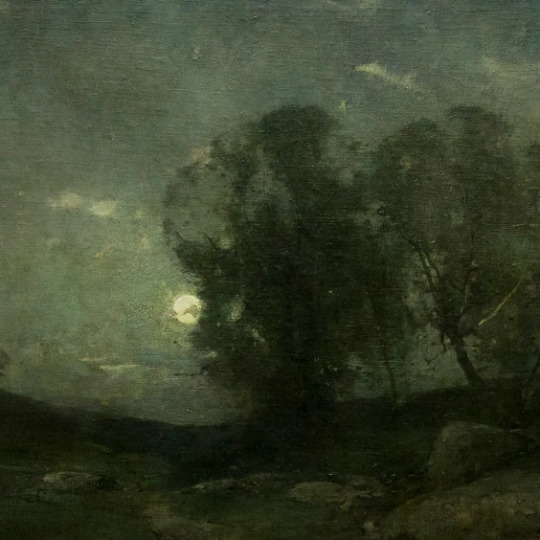#Lea Friedrich
Explore tagged Tumblr posts
Text
The final track cycling events of the 2024 Paris Olympics have wrapped up, and they saw some impressive performances that *almost* convinced us to watch track cycling more.
New Zealand had a very good last week, with Ellesse Andrews winning women's Keirin. Hetty van de Wouw of the Netherlands and Emma Finucane of Great Britain finished silver and bronze, respectively. (Can we also mention how absolutely 🔥 the New Zealand kit is? The stark black and fern motif looks so cool. We almost want to do a best of Olympic cycling kit, there were some other great ones out there.)

Other than the funny bike situation, Keirin seems like one of the track events we understand best. It's a bike race, you race together and whoever is fastest wins. There's a pacing motorcycle on the track? It speeds up, or it just pulls off? I dunno, that's weird, but at least it's just becomes a race, and very fast one!
Sprint is a different animal, and seemingly a misnomer. They just ride around slowly, looking at each other. It's like the silliest, slowest part of a road race that ends in a two-up sprint. And they do it again? Okay, whatever, that's fine.
It was more than fine for New Zealand, because Ellesse Andrews took gold in that event as well, followed by Lea Friedrich of Germany for silver and Emma Finucane of Great Britain for bronze, added to her silver in the Keirin.

And then we come to the omnium, a track cycling race that we truly do not understand. Seriously, what is this event? You race around and there are periodic sprints, and you score points on certain laps, and the points add up over multiple races? This just sounds like an event that makes you race a bike and do math in your head as you keep an eye on competitors and laps, and that makes our heads hurt.

This event was dominated by American Jennifer Valente, who already had a gold to her name in women's team pursuit. She entered the final race in the lead, and kept it all the way for gold. Poland’s Daria Pikulik won silver, and New Zealand’s Ally Wollaston took home the bronze after holding off Lotte Kopecky of Belgium.

(For the record, Australia's yellow and green kit with indigenous designs on the sleeves also looks very cool.)
But it gets worse! Because the madison is a very similar event that is like a tag-team relay involving tagging in and out, and half of the riders aren't engaged at any particular moment, and they sling-shot each other around, all while keeping track of points and competitors and laps. 🫠
The madison was apparently (who knows, we couldn't even tell) won by a resurgent Italian team made up of familiar names in road racing, Vittoria Guazzini and Chiara Guazzini. Great Britain's Elinor Barker and Neah Evans took home silver while Maike van der Duin and Lisa van Belle of the Netherlands leapt into third place after lapping the pack to score big took home bronze.

Our heads hurt just trying to describe it all, but it was exciting racing, and a nice send-off for cycling at the 2024 Paris Olympics!
#2024 paris olylmpics#bikegirls#girlsonbikes#womens world tour#women on bikes#wwt#Keirin#sprint#omnium#Jen Valente#Ally Wollaston#Daria Pukulik#Lotte Kopecky#Ellesse Andrews#Lea Friedrich#Emma Finucane#Hetty van de Wouw#vittoria guazzini#chiara consonni#elinor barker#neah evans#Maike van der Duin#Lise van Belle
9 notes
·
View notes
Text
youtube
Händel: "Eternal Source of Light Divine" Thomas Dunford, Jupiter, Lea Desandre, Iestyn Davies
42 notes
·
View notes
Photo

Chapter One: “Once Upon A Time… In Nazi-Occupied France” - Inglourious Basterds (2009)
#2009#film#movie#WWII#cars#Inglourious Basterds#Quentin Tarantino#Christoph Waltz#Colonel Hans Landa#Wolfgang Lindner#Herrman#Denis Menochet#Perrier LaPadite#Lea Seydoux#Charlotte LaPadite#Tina Rodriguez#Julie LaPadite#Lena Friedrich#Suzanne LaPadite#Once Upon A Time… In Nazi-Occupied France#France#Mercedes-Benz#170 VG#W133 III
18 notes
·
View notes
Text
Händel - Cantate Italiane - Le Consert D'Astrée
youtube
#youtube#music#baroque music#18th century#orchestra#vocal#sabine devieilhe#lea desandre#georg friedrich händel
0 notes
Text
Hotel Barcelona
Hotel Barcelona (Mini-Serie 2023) #MinaTander #HerbertKnaup #InkaFriedrich #VladimirBurlakov #LeaZoëVoss #AlessijaLause Mehr auf:
Mini-Serie Jahr: 2023 Genre: Drama Hauptrollen: Mina Tander, Herbert Knaup, Inka Friedrich, Vladimir Burlakov, Lea Zoë Voss, Alessija Lause, Michele Oliveri, Ivana Miño, Manuel Cortez, James Giblin, Eduardo Ferrés, Hanh Mai Thi Tran … Serienbeschreibung: Laura Santos (Mina Tander) kehrt mit ihrem Sohn Pedro (Tristán López) in das Luxushotel ihrer Eltern zurück, wo sie aufgewachsen ist. Sie…

View On WordPress
0 notes
Note
Hi! I found your blog just recently and I love the Vesnaposting - the art, the comics, the gifs from the game, all of it. I've got so many questions:
How did you got yourself interested in this time period? Why Bohemia? Where exactly could the castle be found? Do you plan to connect your story with some "greater events" from that time? Will your OCs travel a bit?
Please, continue with all of this. It looks great and I would also love to play the game one day!
Thank you very much for the questions! I love getting intricate and thought out things to answer, and I'm humbled you like it!
I've been a sort of amateur medievalist for a while now- I can't point specifically to when it started, but it might have been reading Pillars of the Earth as a teenager, or finding out that the town I grew up in had an important courthouse that was closed in the 1300s- that's a scale of time that overwhelmed me then, and still makes me feel a deal of frisson now. The 1200s specifically sit at an intersection of really cool stuff in central europe- it's right before Franziscanism spreads and shakes up the monastic system, Waldensian heretics were prefiguring how the church would later fracture (I feel they resemble specifically the czech utraquists in some of their stylings and beliefs), and the Pope was in open conflict with the holy roman emperor; On the political side, Friedrich II was nearing the end of his reign, and his death would lead to the interregnum, where the empire is effectively without an emperor for years on end; The Popponer dynasty is about to crumble in Austria, and the Lion of Prague Ottokar II Přemýsl is about to add all of Austria to the Bohemian Kingdom, interrupting the ongoing Ostsiedlung (German Eastern Colonization, for those who don't know), all to the backdrop of endless failing crusades. It's just before the Habsburgs gain greater relevance and europe slides into the rennaissance, in my mind putting an end to the "proper" middle ages.
I've been curious about Czechia for a long time; I was too young to really notice when the country joined the EU, but even years later, I remember grumbling that they were going to "ruin" us, by flooding our country with cheap labour or products or somesuch. It's always struck me as odd. That energy ended up getting redirected towards migrants from the near east in the 2010s, but it's stuck with me; Here's a country Austria has, in some form or another, struggled with for centuries, dominated terribly through to the very end of our wretched pitiful attempt at an 'empire,' tried to keep chunks of as recently as 100 years ago, and yet I didn't learn so much as a single thing about it in school. Austrian schooling is dead set on not mentioning a single thing between about 1500 to 1933 (and even then, we often gloss over just *how* enthusiastic a lot of austria was to participate in the holocaust and become part of germany- or how no real denazification took place after the war), and obviously reading any history at all immediately got me hooked on finding out more. History aside, I love the bohemian massif dearly; the rolling hills, deep shadowy forests, little brooks, misty autumns, distant alps, it's one of my favourite regions on earth; I grew up in southern upper austria, but studied near Freistadt, which is where I gathered a lot of reference material for Vesna.
The castle doesn't have an official location, but there is a general area: "north of Freistadt, east of Rožmberk." Here are some rough indications on a modern Vesna era map, a rennaissance map, and google maps:



4. Not to spoil anything, but yes- Franzesca's father, a Bavarian, is a true believer in the "stupor mundi" Frederick II, and the need to "germanize" the backward slavic populations of Bohemia; He detests Saint Václav and forbids castle servants from speaking czech. The timing of the events of Vesna is chosen very specifically to be ironic in this regard- but you'll see when we get there :P
5. Yes, at the very least you will get to see Vesna and friends in the Machlant, Rožmberk and Linz. Franzesca will travel to her family home of Innsbruck and to Normandy, and it's likely more will happen, depending on where the story goes.
Thank you again for the questions! I hope to be working on Vesna for a long time, if it stays interesting :)
51 notes
·
View notes
Text
Oh, she’s actually facing Lea Sophie Friedrich? Ok
That’s not much better tho
Mathilde will be facing Emma Hinze next? It’s so over… 😔
#Lea Sophie Friedrich#Mathilde Gros#cycling#track cycling#world champs#world champs 23#track cycling sprint
4 notes
·
View notes
Text










// The Woman Dies, Aoko Matsuda // Selene, Ferdinand von Keller // Representations of Female Suicide by Drowning in Victorian Culture, Valerie Meessen // Perseus, Benvenuto Cellini // The Resurgance of the Monstrous Feminine, Hannah Williams // Dead Blondes and Bad Mothers: Montrosity, Patriachary, and the Fear of Female Power, Sady Doyle // Ophelia, Friedrich Wilhelm Theodor Heyser // Hamlet Act 4, Scene 7, Shakespeare // Woman Hating, Andrea Dworkin // Eve, Anna Lea Merritt //
6 notes
·
View notes
Text
youtube
Cloudy June - Devil Is A Woman (Official Music Video) Listen here to "Devil Is A Woman" - https://ift.tt/xZCTA0O _____________________________________________________________ WE'RE ALL MAD HERE TOUR 2024: Tickets - https://tix.to/Cloudy 03/06 Birmingham, UK 03/07 Manchester, UK 03/08 Leeds, UK 03,09 London, UK, 03/12 Amsterdam, NL 03/13 Antwerpen, BEL 03/14 Paris, FR 03/20 Zurich, CHE 03/21 Stuttgart, GER 03/22 Frankfurt, GER 03/24 Munich, GER 03/25 Vienna, AUT 03/26 Prague, CZE 03/28 Warsaw, POL 04/03 Cologne, GER 04/04 Hamburg, GER 05/05 Berlin, GER Subscribe to Cloudy June https://www.youtube.com/@CloudyJune Follow Cloudy June https://ift.tt/twnfkUl https://ift.tt/rpPg0ol https://twitter.com/cloudyjunemusic https://ift.tt/lzOoLjD https://ift.tt/HEqGjoU ------------------------------------------------------------------------------------------------- CREDITS AUDIO Written by: Claudia Terry Verdecia, Claudio Maselli, Valentin Glage, Vincent Már Stefansson Produced by: TVVINS VIDEO Production by STUDIO 11:40 & MAYHEM GmbH Management: AUTTA Space Music Management: Alex Neubauer, Paris Zinner Label: IRRSINN/Columbia Director: Ricarda Haehn Executive Producer: Ronja Prinz DoP: Nicole Medvecka Producer: Pia Domkowski Production Assistant: Theresa Braun 1. AC: Franz Deutschmann Gaffer: Sandra Glaser Spark: Ruben Fleischer Key Grip: Felix Schüler Visual Effects, CG Design and Animation by Mayhem Berlin @ Virtual Production Supervision: Jens Hallman Unreal Scene Design & Animation: Jonas Friedrich Lead Compositing: Frederic Berninger Compositing: Daniel Weik Additional Compositing Consulting: Valentin Lübbert Additional Unreal & Virtual Production Consulting: Sebastian Kaja IT Support: Robert Schrödter Creative Production, VFX Supervision, Unreal Scene Design & Animation Compositing: Jeremias Steinmann Virtual Production Technology provided by Vive (Vive Mars Camtrack & Vive pro) Technology Rental Supplier: Monkey Rent Virtual Production consulting & support: Max Sacker, Another World Created with Unreal 5.03 from Epic Stylist: Esteban Pomar Styling Assistant: Anton Hargesheimer Hair Stylist: Fily Mihan Make Up Artist: Naomzz rep. by Collective Interest Nails: Thams does Claws Edit: Vigdís Erla / S EC Edit Assets: Moritz Giesl / S EC Colors: Delfina Mayer / MAP Berlin Thank you to Lasziviar, Poda Moda and Lea Zinner. ------------------------------------------------------------------------------------------------- DOES YOUR GIRLFRIEND TOUR? 2023 Tickets: https://ift.tt/K91Fi5P 14.03.2023 Frankfurt, Das Bett 15.03.2023 Dortmund, FZW club 16.03.2023 NL-Amsterdam, Paradiso 17.03.2023 Köln, Gebäude 9 19.03.2023 CH-Zürich, Exil 20.03.2023 Stuttgart, Im Wizemann (Studio) 22.03.2023 München, Ampere 23.03.2023 Dresden, Groovestation 24.03.2023 CZ -Prag, Rock Café 25.03.2023 AT-Wien, Chelsea 27.03.2023 Leipzig, Täubchenthal 28.03.2023 Hannover, Lux 29.03.2023 Hamburg, Knust 31.03.2023 Berlin, Lido 12.04.2023 UK-London, Camden Assembly 13.04.2023 FR-Paris, Supersonic #cloudyjune #devilisawoman via YouTube https://www.youtube.com/watch?v=JsLxhP_YkuM
0 notes
Text
Most Popular Names in Germany Top 10

Are you curious about the most popular names in Germany? Names are an essential part of cultural identity, and Germany boasts a diverse and rich naming tradition. From classic names that have stood the test of time to modern and unique choices, German names hold a unique charm. In this article, we will explore the top names that have captured the hearts of parents in Germany, diving into their meanings and significance.
Table of Contents
- Introduction - Traditional German Names - Modern Trends in Naming - Gender-Neutral Names - Celebrity-Inspired Names - Name Meanings and Origins - Factors Influencing Name Choices - Regional Variations in Names - Naming Laws in Germany - Name Evolution Over Time - The Role of Surnames - Unconventional Naming Choices - Impact of Globalization on Names - The Emotional Connection to Names - Conclusion - FAQs
Introduction
Names hold a mirror to the culture and society of a country, reflecting its history, values, and trends. Germany, with its rich heritage and modern influences, showcases a diverse array of names that have gained popularity over the years. Male Names: - Lukas - Elias - Benjamin - Leon - Paul - Jonas - Finn - Maximilian - Noah - David Female Names: - Emma - Mia - Hannah - Emilia - Lina - Anna - Lea - Sophia - Marie - Lena
Traditional German Names
Classic names like Heinrich, Gertrude, and Wilhelm have deep roots in German history. These names have a timeless quality that continues to attract parents looking for names with a historical touch.
Modern Trends in Naming
In recent years, there has been a shift towards more contemporary names like Liam, Mia, and Noah. These names resonate with modern sensibilities while maintaining a connection to German heritage.
Gender-Neutral Names
Gender-neutral names such as Alex, Jordan, and Taylor are gaining popularity as parents seek names that challenge traditional gender norms and offer a sense of inclusivity.
Celebrity-Inspired Names
Celebrities often influence naming trends. Names like Lena, after the popular singer, and Lukas, inspired by a well-loved football player, have gained prominence.
Name Meanings and Origins
Names like Friedrich, meaning "peaceful ruler," and Amelia, meaning "industrious," carry profound meanings that parents connect with on a personal level.
Factors Influencing Name Choices
Religious beliefs, historical figures, and family traditions all play a role in naming decisions. Parents often choose names that hold personal significance.
Regional Variations in Names
Different regions in Germany have their own naming preferences. Names popular in the north might differ from those in the south, adding to the country's name diversity.
Naming Laws in Germany
Germany has strict naming laws to prevent names that could be detrimental to a child's well-being. Names must indicate the gender and not be offensive.
Name Evolution Over Time
Names evolve with societal changes. Old names experience resurgence, while others fade into obscurity due to evolving tastes.
The Role of Surnames
Surnames like Schneider (tailor) and Fischer (fisherman) often have occupational origins, providing insights into the ancestral professions of families.
Unconventional Naming Choices
Some parents opt for unique names like Jasper or Elke, making their child stand out in a crowd and fostering individuality.
Impact of Globalization on Names
Globalization has introduced international names to Germany. Names like Sophia and Alexander have gained popularity due to their universal appeal.
The Emotional Connection to Names
Names are emotionally charged, connecting individuals to their cultural roots and family legacies. They become a part of one's identity.
Conclusion
In conclusion, names in Germany reflect a captivating blend of tradition and modernity. From traditional names rooted in history to contemporary choices influenced by global trends, German names continue to intrigue and inspire. Choosing a name is a deeply personal decision, a glimpse into a parent's hopes and aspirations for their child.
FAQs
- Q: Can I give my child any name in Germany? A: While Germany allows a range of names, they must adhere to certain guidelines to ensure the child's well-being. - Q: Are traditional names losing popularity? A: Traditional names are still cherished, but modern and international names are gaining traction. - Q: What's the significance of gender-neutral names? A: Gender-neutral names challenge stereotypes and promote inclusivity and equality. - Q: Do names have legal implications in Germany? A: Yes, names are subject to legal regulations to prevent names that could harm the child's interests. - Q: How do German names compare to naming trends in other countries? A: German names share similarities with international trends while maintaining their unique cultural flavor. Read the full article
0 notes
Text
temp * MUSELIST
while I work on my new slide! **non canon: B N H A and Gen//shin I am no longer caught up with the story but also don’t care about spoilers.
*°∙ ARKNIGHTS
Angelina ∙ Aurora ∙ Blacknight ∙ Blitz ∙ Du Yaoye ∙ Erato ∙ Hibiscus ∙ Kjera ∙ Siege ∙ Specter ∙ Surtr ∙ Theresa ∙ Whisperain ∙ Zima
*°∙ AVATAR
Ghazan ∙ Jet ∙ Jin ∙ Katara ∙ LanMing [OC] ∙ Lin BeiFong ∙ Lu Shi [OC] ∙ Ming Hua ∙ Momo ∙ P’Li ∙ Toph BeiFong ∙ Ty Lee ∙ Zaheer
*°∙ BO//KU NO HE//RO *non canon
Ayumi [OC] ∙ Boris [OC] ∙ Chitose ∙ Denki ∙ Eri ∙ Hisao [OC] ∙ Hitoshi [AU] ∙ Best Jeanist ∙ Kyoka ∙ MCSpeed [OC] ∙ Megumi [OC] ∙ Mina ∙ Nejire ∙ Ningyo Ko [OC] ∙ Petra [OC] ∙ PopStep ∙ Recovery Girl ∙ Shuzenji Ren [OC] ∙ Ochako [AU]
*°∙ BUN//GO STR//AY DOGS
Aldous Huxley [OC] ∙ Alexander Hamilton [OC] ∙ Arma Geddon [OC] ∙ Bello [OC] ∙ Chuuya Nakahara ∙ Derek Landy [OC] ∙ Friedrich Nietzsche [OC] ∙ Fumiko Hayashi [OC] ∙ Gin Akutagawa ∙ Heinrich Heine [OC] ∙ Ichiyo Higuchi ∙ Jane Austen [OC] ∙ Kouyou Ozaki ∙ Kyouka Izumi ∙ Lucy M Montgomery ∙ Markus Heitz [OC] ∙ Ranpo Edogawa ∙ Tetcho Suehiro ∙ Tousui Nakarai [OC]
*°∙ DIS//NEY
Eugene Fitzherbert ∙ Merida ∙ Pepa Madrigal ∙ Sally
*°∙ FIRE EMB//LEM (3H)
Annette ∙ M!Byleth ∙Catherine ∙Dedue ∙ Dorothea ∙ Hilda ∙ Holst ∙ Ignatz ∙ Kronya ∙Lysithea ∙ Mercedes
*°∙ FULLMETAL ALCH//EMIST
Roy Mustang ∙ Riza Hawkeye ∙ Winry Rockbell
*°∙ GEN//SHIN IM//PACT *non canon
Barbara ∙ Beidou ∙ Fischl ∙ Kaeya ∙ Klee ∙ Paimon ∙ Noelle ∙ Rosaria ∙ Shenhe ∙ Sucrose ∙ Yanfei ∙Zhongli
*°∙ HONKAI IMPACT 3RD
Lieserl Albert Einstein ∙ Rita Rossweisse ∙ Seele Vollerei
*°∙ HUNTER X HUNTER
Chrollo ∙ Hisoka ∙ Machi
*°∙ LEA//GUE OF LEG//ENDS
Annie ∙ Jinx ∙ BA Katarina ∙ BA Leona ∙ Orianna ∙ SB Thresh ∙ Vi
*°∙ MO DAO
A-Qing ∙ Wei Wuxian ∙ Song Zhen [OC]
*°∙ PER//SONA
Ann ∙ Kanji ∙ Rise ∙ Yukiko
*°∙ SOUL EATER
Nathaniel Grave [OC] ∙ Tsubaki
*°∙ SQUARE ENIX (Final Fantasy, Kingdom Hearts, NieR)
9S [NieR] ∙ Aerith [FF7] ∙ Devola & Popola [NieR] ∙ Kainé [NieR] ∙ Kairi [KH2] ∙ Leslie Kyle [FF7] ∙ Madam M [FF7] ∙ potentially FFXIV muses?? tbd
*°∙ YOUR TURN TO DIE
Alice ∙ Anzu ∙ Mai ∙ Nao ∙ Rio Ranger ∙ Reko ∙ Sara ∙ Sue Miley ∙ Tia Safalin
*°∙ OTHER
Howl Pendragon [Howl’s Moving Castle] ∙ Ido Uchida [OC] ∙ Lucyna Kushinada [Cyberpunk: Edgerunners] ∙ Perphe [Cardfight!! Vanguard] ∙ Polly Geist [Monster Prom] ∙ Pyrrha Nikos [RWBY] ∙ Reze [Chainsaw Man] ∙ Riley [Pokemon] ∙ Zakusa [Cardfight!! Vanguard]
1 note
·
View note
Text
Mondiaux sur piste : Mathilde Gros sacrée championne du monde de la vitesse individuelle devant Lea Sophie Friedrich
Mondiaux sur piste : Mathilde Gros sacrée championne du monde de la vitesse individuelle devant Lea Sophie Friedrich
🪁Mondiaux sur piste : Mathilde Gros sacrée championne du monde de la vitesse individuelle devant Lea Sophie Friedrich ✈️ #banque #france | #Mondiaux #sur #piste #Mathilde #Gros #sacrée #championne #monde #vitesse #individuelle #devant #Lea #Sophie #Friedrich | Mondiaux sur piste : Mathilde Gros sacrée championne du monde de la vitesse individuelle devant Lea Sophie Friedrich Un sacre aux airs…

View On WordPress
#championne#devant#Friedrich#gros#individuelle#Lea#Mathilde#monde#Mondiaux#piste#sacrée#Sophie#sur#vitesse
0 notes
Photo

Chapter One: “Once Upon A Time… In Nazi-Occupied France” - Inglourious Basterds (2009)
#2009#film#movie#WWII#Inglourious Basterds#Quentin Tarantino#Christoph Waltz#Colonel Hans Landa#Denis Menochet#Perrier LaPadite#Lea Seydoux#Charlotte LaPadite#Tina Rodriguez#Julie LaPadite#Lena Friedrich#Suzanne LaPadite#Once Upon A Time… In Nazi-Occupied France#France
62 notes
·
View notes
Photo









Blodeuwedd
// Friedrich Heyser, Ophelia,1900 // Melchior D'Hondecoeter, The Concert of Birds,1670 // René-Antoine Houasse, Apollo pursuing Daphne,1677 // Aert van der Neer, A Landscape with a River at Evening, 1650 // Lawrence Alma Tadema, Spring, 1894 // Nicolas de Vree, A Forest Floor Still Life with Flowering Plants and Butterflies, 1702 // Salvatore Postiglione, Dante a Beatrice, 1906 // Emil Carlsen, Moonlight, 1901 // Anna Lea Merritt, Eve, 1885 //
168 notes
·
View notes
Text

Lea Jones
I overcame myself, the sufferer; I carried my own ashes to the mountains; I invented a brighter flame for myself.
Friedrich Nietzsche, Thus spoke Zarathustra
57 notes
·
View notes


